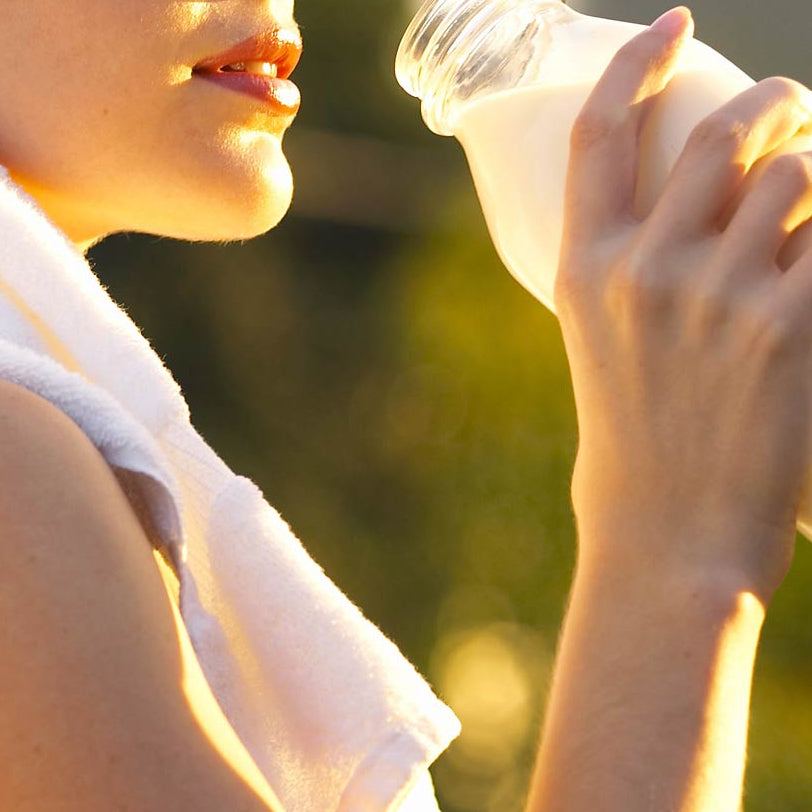
Just lately I have been trying to implement weight training into my week for health reasons and entered the whole world (and it's ridiculous marketing!) for pre and post workout supplements and nutrition. While a lot of these products are great, it's been a great relief to realize just how amazing kefir is (and in most cases superior) for recovery. Not to mention much much cheaper. Yet another reason I can't stop loving this wonder food.
1. Protein and nutrients
Kefir has a rich nutritional profile that leads itself well to muscle recovery and growth. In one cup of kefir there are 8-11 grams of protein. The whey protein is helpful in muscle recovery and the casein protein is slow which helps metabolize the protein for a longer stretch of time. Kefir is rich in calcium, vitamin D which is good for bones. The K2 produced by the fermentation may increase the function of muscle and endurance. Kefir is also very rich in all B vitamins which is great for energy. Also B6 and B12 helps metabolize proteins which is essential for muscle growth.
2. Lower inflammation
A fascinating study from Louisiana State University showed that kefir kept inflammation low after a 15-week endurance trial. Endurance exercise can increase body inflammation as shown in an increase the C-reactive protein. However, the group that consumed kefir after the endurance training showed no increase in the C-reactive protein (inflammation). A high C-reactivie protein level means that there is a greater risk of developing coronary artery disease.
3. Bio-active peptides
One study identified around 4592 peptides from kefir, and over 35 bio-active peptides. All these peptides are produced during the fermenting process. Bioactive peptides are added to many work-out supplements because they are shown to enhance recovery and improve body mass development. Bio-active peptides are amazing at modulating immunity and inhibiting ACE (Angiotensin-converting enzyme) which is important in keeping blood pressure lower. Both important factors in cardiovascular health.
4. Lower CK, Ammonia and Plasma Lactate levels
In one study involving mice, they added kefir to their diet for 5 weeks. After 5 weeks, they showed that the kefir was enough to significantly lower plasma lactate (lack of oxygen), ammonia, and Creatine Kinase (CK) levels (marker of damage). The mice showed great improvements in strength and became much less fatigued. Even though the testing was done on mice, it’s still quite impressive.
5. Probiotics
The many billions, if not trillions of bacteria, help aid in absorption and digestion of much needed mineral, amino acids and proteins for sustained energy and muscle recovery. There are studies showing that the bacteria can slow fat-cell growth and help weight loss. However, anecdotal evidence from people who drink daily does suggest that too much kefir can lead to weight gain. So, all things in moderation if weight loss is the ultimate goal.


Comments
Yemoos Nourishing Cultures
Thanks so much for the comment Stacy! We edited the article to elaborate a bit on the ACE inhibition as well as a link to another article that explains it better. But basically its all about lower blood pressure and the benefits associated with that.
February 19, 2019
Stacy
In your article on the benefits of drinking kefir following a work out, you used an acronym without explaining what it is. Please explain what ACE is since it seems kefir has a positive preventative effect. Thank you. I enjoy reading your blog articles and learn a lot in the process of reading them.
February 19, 2019
Leave a comment